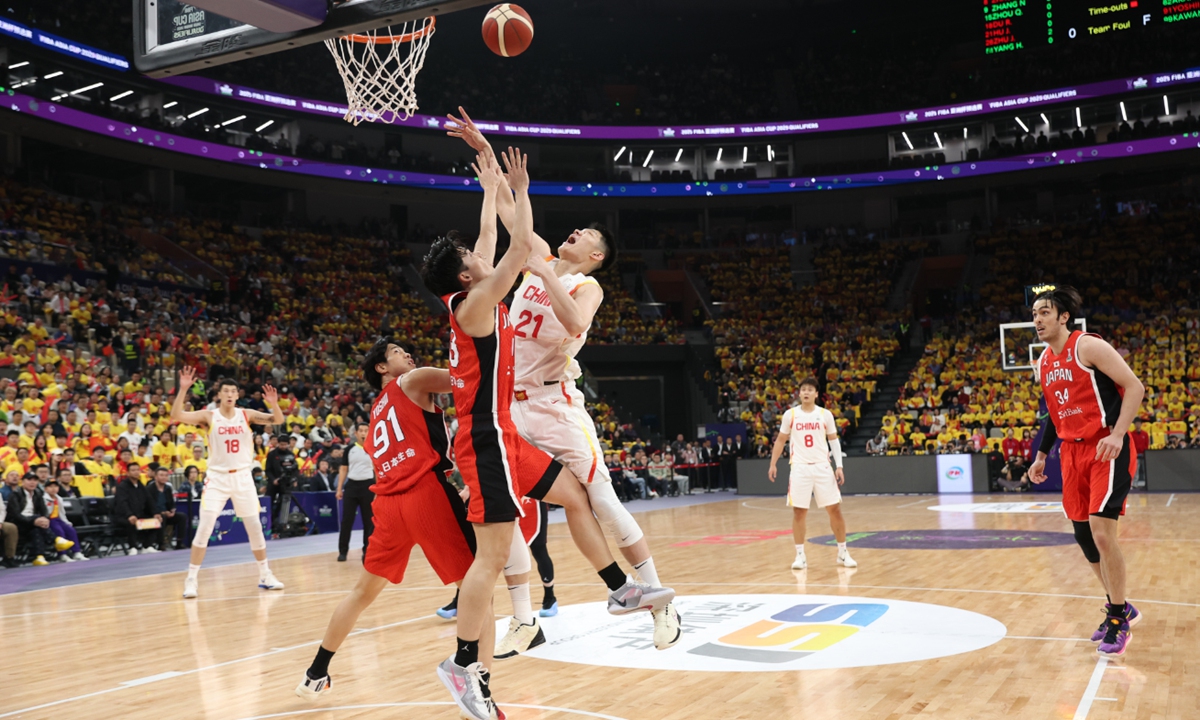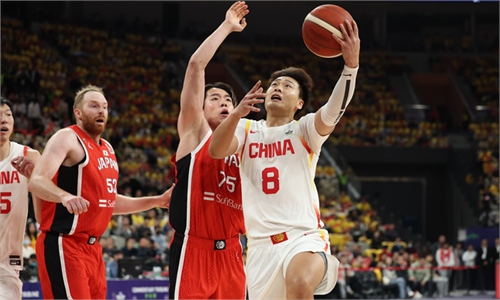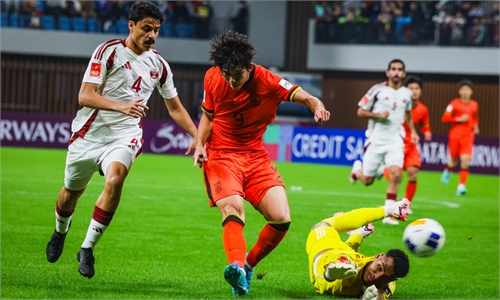SPORT / MISCELLANY
Chinese basketball team to face Saudi Arabia, Jordan, India in group stage at Asia Cup

Photo: VCG
The Chinese men's basketball team has been placed in Group C of the 2025 FIBA Asia Cup, alongside host nation Saudi Arabia, Jordan, and India. The draw ceremony was held Tuesday in Jeddah, Saudi Arabia. The tournament is scheduled to run from August 5 to 17 in Jeddah and feature a total of 16 participating teams.According to the latest FIBA rankings, China is currently ranked sixth in Asia, followed by Jordan at eighth, Saudi Arabia at 10th, and India at 15th.
The 16 teams competing at the Asia Cup will be divided into four groups. Group winners will advance directly to the quarterfinals, while the second- and third-placed teams in each group will face off in crossover elimination games for the remaining spots in the last eight. The quarterfinals, semifinals, and final will all follow a single-elimination format.
Since making their debut at the FIBA Asia Cup - formerly known as the FIBA Asia Championship - in 1975, China has won the tournament a record 16 times. However, their performance in recent years has fallen short of expectations, including an underwhelming eighth-place finish at the 2022 edition in Jakarta.
Further setbacks followed in 2023. China missed out on a berth for the Paris 2024 Olympics after a disappointing run at the FIBA World Cup in Manila, and later had to settle for bronze at the Hangzhou Asian Games, where they were stunned by the Philippines in the semifinals.
According to Sports News, China has shown improvements in fast-break scoring and perimeter defense under coach Guo Shiqiang. However, there is still work to be done when it comes to offensive cohesion and three-point shooting consistency as China recorded a modest 34.1 percent from beyond the arc during the qualifiers, averaging 8.4 three-pointers per game.
Liu Yu, a sports commentator based in Beijing, told the Global Times on Wednesday that he believes Jordan will be a particularly formidable opponent in Group C.
"Jordan poses a significant threat to China. In the previous edition of the tournament, Jordan reached the semifinals and narrowly missed out on the final, losing to Lebanon by just one point," Liu noted.
Beyond the immediate challenges of the Asia Cup, Liu noted that China needs to focus on long-term player development and the broader popularization of basketball across the country.
"There's significant room for improvement in youth training systems and talent pipelines," he said.
"The Asia Cup is not just a competition, it's also an opportunity to test our new generation of players on the international stage," Liu said.
"Facing strong teams like Australia, Japan, and New Zealand will undoubtedly be tough, but it's also a valuable chance to close the gap with top-tier basketball nations," he concluded.



